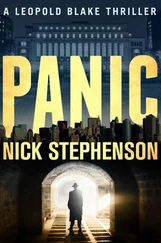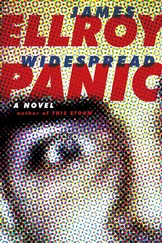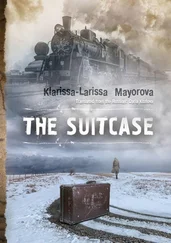Andrei spared Pasha having to formulate the question and elucidated the concept of hydro years, relying heavily on the fundamental let-lie principle, which required its own brief overview. Hearing himself say worms, dirt, eye sockets, Andrei got intense jolts of pleasure. He closed with a quaint theory of calves. A woman listening in began performing a roof dance, which came with an accompanying chant. That Pasha found this long-haired swaying charming meant he was no longer in his right mind.
The stairs were steeper on the way down, the lights dimmer. Fortunately there was someone leading the way and, if need be, a cushion. But had they gone up this many flights? Peeling gaze from shoes, Pasha found himself alone in the middle of a landing. The other set of footsteps had just been an echo of his own. The building, called Eldorado, really was a vertical city. He was stranded somewhere within it. Misha had brought him to Renata’s door, Bozhko had delivered him to the roof — the apartment number, even the floor, was a mystery. Doors were duplicating, noise tangled and muffled and coming from everywhere at once. What was being played was a programmed memory of building sounds. A flare of panic unsteadied Pasha’s footing. He gripped the railing, lowered himself onto a step.
There was a desire to get back, an urgent need for reintegration. He felt a danger to himself. If left to his thoughts, he would have to think. Much had been riding on his having a mediocre time tonight; instead he was being a fool and enjoying himself. Excitement spoiled solitude. He’d grown accustomed to stimulation coming strictly from within. The dose could be regulated, specific flavor chosen. Sometimes satisfaction was two scoops of vanilla, other times Milton, Brodsky, a Gregorian chant or two. Laughing at a joke wasn’t without risk for someone like Pasha, who was often described as absorbed in his own thoughts. This wasn’t, as people supposed, because they weren’t interesting enough to engage him but for his own protection, the irony being that had they been interesting he would’ve been helpless against them. An inherent flaw in the heavy-duty defenses Pasha set up against humanity was that regardless of heavy-dutiness they could be demolished in an instant by exceptional people — such rarities in certain parts of the world that defenses were erected without them in mind, just as you wouldn’t install floodgates in the Sahara.
No napping in the stairwell, said Fishman.
Pasha was returned to civilization, but it wasn’t the same. Something had changed, though he couldn’t put his finger on it. Perhaps it was the odd configuration of chairs. Stumpy-legged Renata swooped in, and before realizing for what, he was making excuses. We went up to the roof, he said. Some people wanted to smoke.
People are smoking in here! Don’t cover for that prick. Andrei knows the roof is off-limits. Last time the alarm went off, neighbors called the cops. They dial 911 if the wind blows too hard. And they want me out of this building. They’re praying for something like this. The sad part is that I never learn. I just figured he’d left, but he’d never leave before every last drop of life had been squeezed. And you wouldn’t go without a good-bye, would you?
They’d missed the reading, during which Renata had called on the guest of honor, a tremendous poet and our new friend, Pavel Robertovich Nasmertov, to share a few of his poems. Pegging him for a low tolerance, she’d prepared a copy of his book and used colorful Post-it notes to mark poems she deemed it best to read (not the wordy ones or those mentioning the camps). A simple mistake had set her on this path. She was confusing Pasha with men who resembled him in superficial ways. These men, like Pasha, lacked spatial awareness, peripheral vision, guile, and garrulity; their height was excessive, only accentuating their infirmity; structural idiosyncrasies were respected with a limited, very particular range of motion that made them identifiable from miles away; their plates remained white until you put something on them; they were known to wander off without warning; in the act they groped blindly, pawing like cubs. Such men wouldn’t know what world Post-it notes came from but would appreciate their not-so-subtle assistance. Equipped with a nonverbal breed of gratitude, they rarely acknowledged the deeds on which their existences relied. It remained unclear whether they even realized that effort and care were taken on the part of another, and in this helpless opacity there was something deeply perpetuating.
But these men were undeviating versions of themselves — and they certainly weren’t performers. When giving a reading, Pasha underwent a transformation. Before an audience Pasha embodied, occupied, seized. The capacities and drives assumed absent or atrophied appeared fully formed. He was forceful and aggressive. He was loud. Renata would’ve whispered her instructions into plugged ears, catching Pasha devoid of a shred of receptivity. After reciting a few poems, he’d notice that he had something clutched in his bloodless fingers. By this time he would’ve forgotten who introduced him or where he was. A sealed realm of acute nowness could get direly claustrophobic. To fend off this threat, any available vents were used, including objects that had accidentally slipped into this realm but still smelled of the outside world (think of prisoners who emerge with the collected Voltaire memorized). Discovering that he was holding his own book and that it was filled with flapping sticky neon squares, Pasha would’ve made a stab at the gesture. Renata would’ve been wounded for years. Any chances of hurt feelings had been averted. Renata could continue to brim with maternal sentiment. Equally fortuitous was that he’d missed the other poets. In the meantime Misha’s powers of rationalization had been called in. It was all very plain and understandable: The reason Bozhko, Fishman, and that whole gang didn’t take an interest in him was that he wasn’t a poet but a prose writer, and too Americanized at that. The only prose writer in their circle was Rosa Salem, and she didn’t count for two reasons: She was an attractive woman (despite the nose), and her prose was as incomprehensible as contemporary poetry. But it was only natural that Pasha should fall in with them.
Lilya, of a dark magnetic beauty freshly extinct in Odessa, whose ghost still haunted the streets, was gone. She wasn’t using the facilities or tucked into a bookcase shadow. As long as she’d been pinpointable, Pasha could happily keep talking to somebody else. The reconstituted atmosphere brought a whiff of party death. What had been ambience was noise, uneven and jarring. The number of people had been cut in half, and the remaining half had to laugh harder, take up more space. The room had been plucked clean of beautiful women. The remaining ones looked as if their feet were killing them. They wore overcompensating blouses, hoping to draw attention to breasts with which they’d struck a deal that was now dusty. Like broken contraptions about to be pawned, their faces had been tinkered with at the last minute, using makeshift tools and a bit of improvisation to attain a precarious guise of serviceability that with some luck would hold for several hours. Smiles like grease smudges hastily wiped. It was impossible to imagine his wife among them. With brazen makeup and a blouse, she’d look absurd and savage. Not in a million years could she manage a grin like that. Pasha was filled with pride. No, his wife never smiled.
As a matter of fact, I often forget the good-bye part, he said. But I’ll try to remember you’re particular about that. Here goes: Good-bye.
You can’t leave yet. Look how much watermelon’s left.
There’s an entire train journey ahead of me, said Pasha, though he did love watermelon.
Читать дальше












